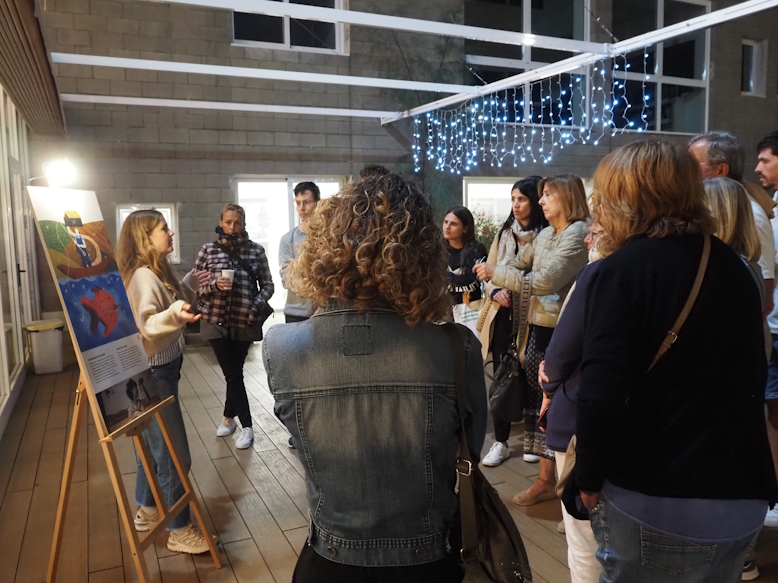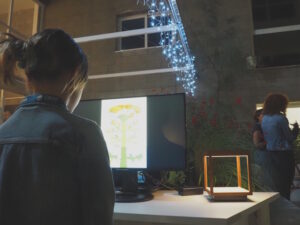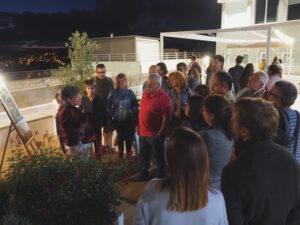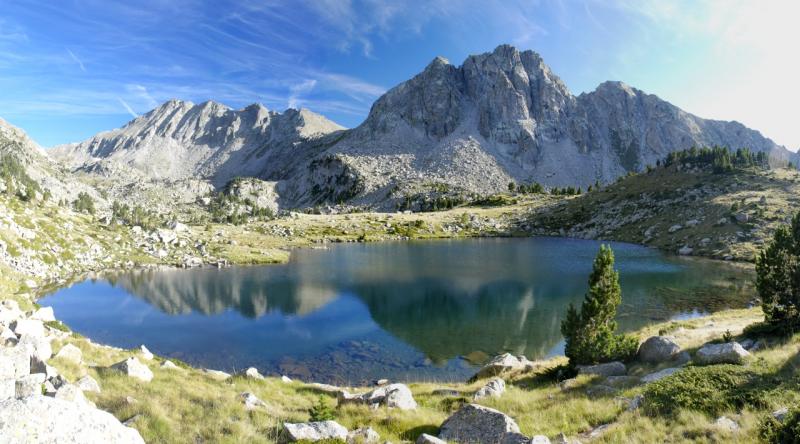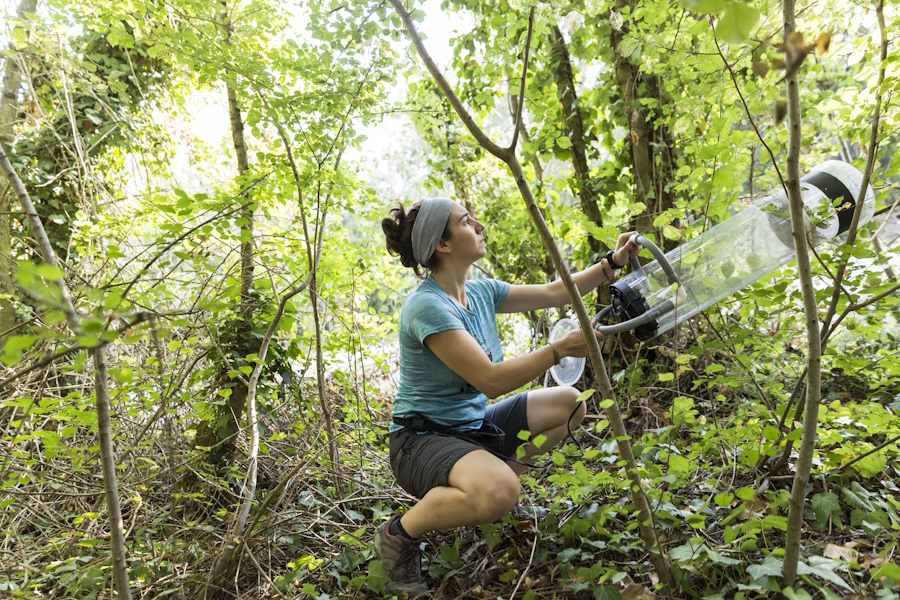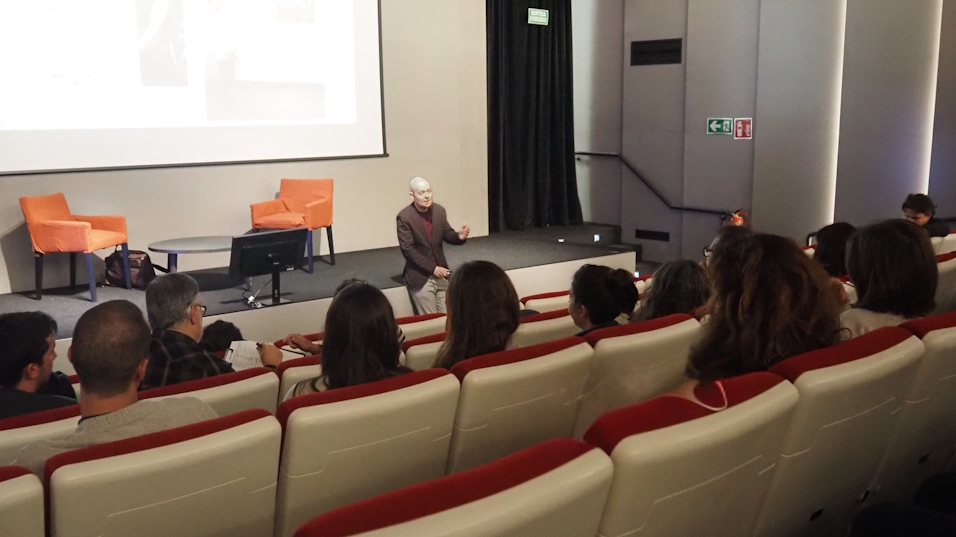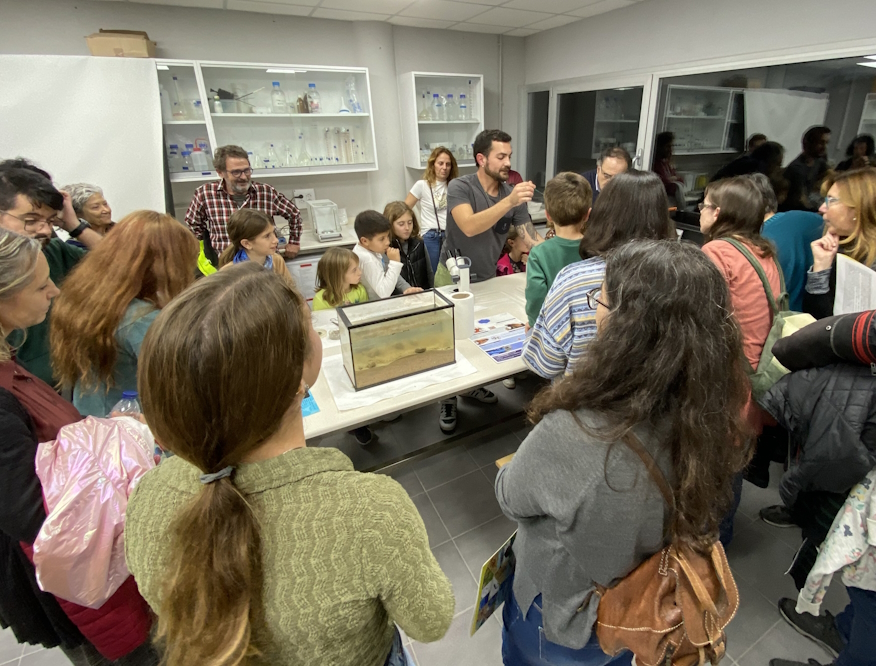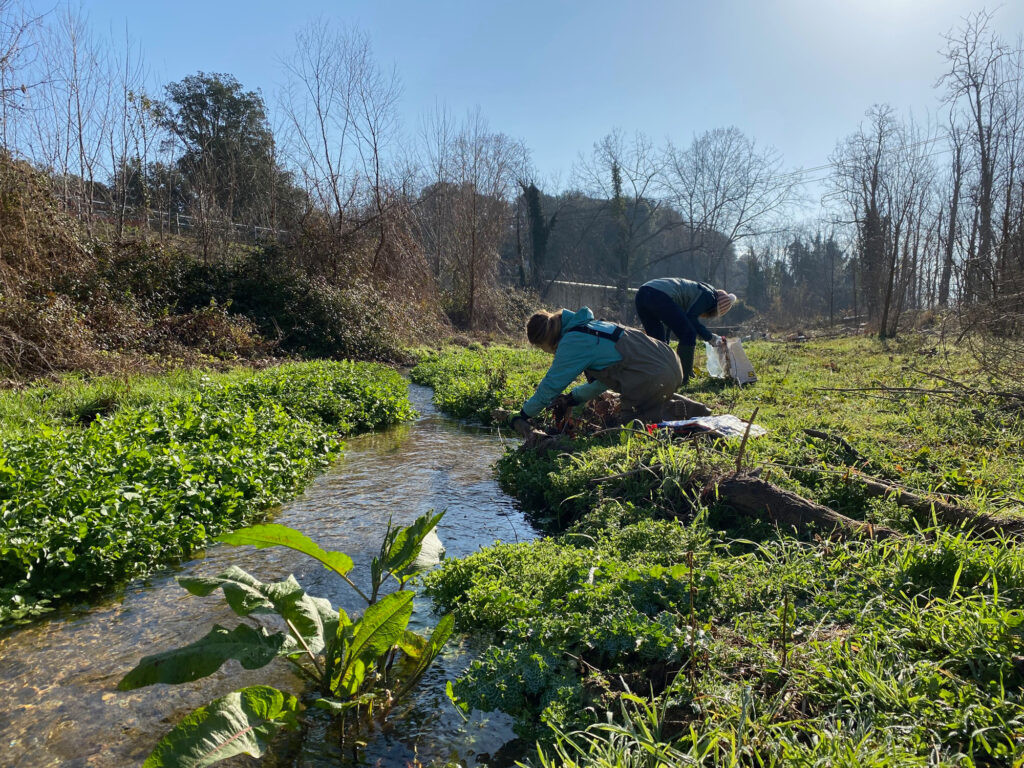The aim of the evening was to bring the international scientific research carried out at the Centre for Advanced Studies (CEAB) closer to the public. It was held at the CEAB headquarters in Blanes on the evening of Friday 27 September. The event focused on the study of freshwater ecosystems.
As part of the European Researchers’ Night – which encourages the organisation of activities that put citizens and research staff in direct contact, in a pleasant context – the Centre for Advanced Studies held “CEAB Night”.
The evening took place at the Centre’s headquarters, at the entrance to Cala Sant Francesc, in Blanes (Girona, Costa Brava).
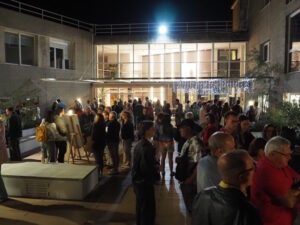
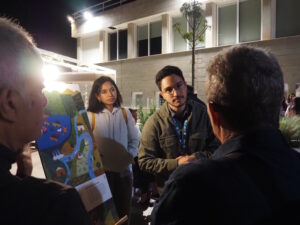
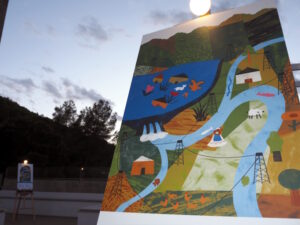
It began with a visit to the interactive exhibition “Augmented Ecofeminisms: Climate, Water and Women”, which shows the main problems facing continental water ecosystems around the world and how, in addition to ecological impacts, they have socioeconomic impacts, especially harming the most vulnerable groups, such as girls and women.
Using the exhibition panels, researchers from the Centre in the field of limnology have presented some key concepts, such as the concept of eutrophication, salinization, loss of biodiversity, the different forms of pollution suffered by freshwater ecosystems or the observed increase in droughts and extreme phenomena and the consequences they entail. In addition, they have spoken about ecofeminism, the research projects being developed by the CEAB in rivers, lakes, wetlands and high mountain ponds, and the results and evidence obtained.
After the initial explanations, already on the terrace of the Centre and enlivened with music and appetizers, the conversation with the audience about all these issues was opened. It was the moment to resolve doubts, to learn more about the research projects, to debate issues such as overexploitation and to find out what can be done – both individually and collectively – to protect the freshwater ecosystems on which we depend so much.
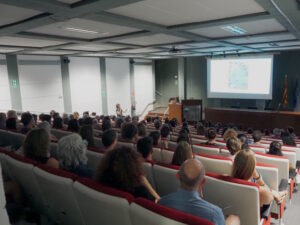
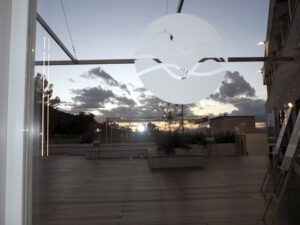
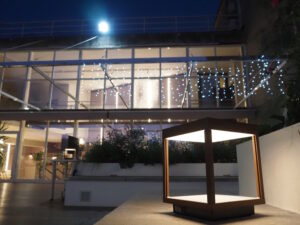
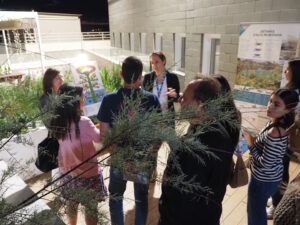
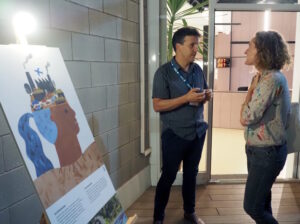
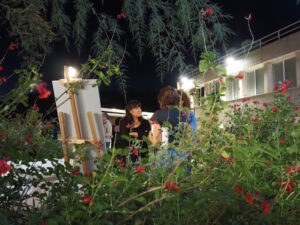
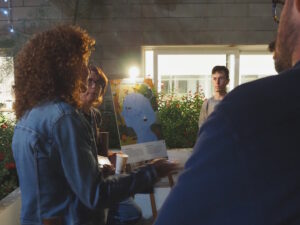
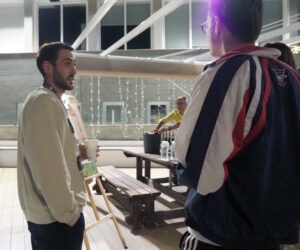
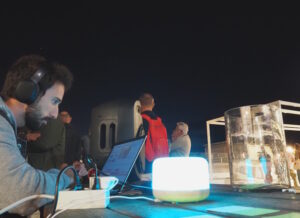
This is the second consecutive year that the CEAB has held this evening to promote direct contact and mutual learning between citizens and research staff. Last year, in 2023, it was dedicated to seas and oceans and the research carried out in these ecosystems from the Centre.

